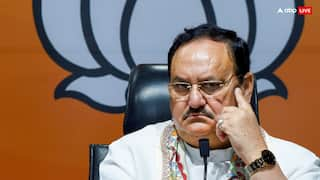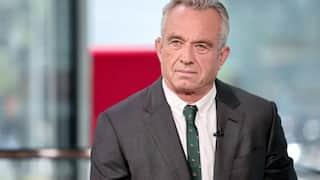CNG Becomes Costlier By Rs 2 Per Kg In Delhi-NCR. Know Latest Rates
In the last one year, prices have increased by Rs 30.21 per kg or 60 per cent, according to data compiled by news agency PTI

New Delhi: In another blow to the common man, prices of Compressed Natural Gas (CNG) in Delhi and neighbouring regions have been hiked once again by Rs 2 per kg. The Indraprastha Gas Ltd (IGL) increased the prices of CNG in Delhi and its adjoining areas by Rs 2 per kg on late Friday.
What is the latest price?
After the recent hike, the CNG is now sold at Rs 75.61 per Kg in Delhi. For regions including Noida, Greater Noida and Ghaziabad, the CNG price has been hiked to Rs 78.17 per Kg, while in Gurugram, it will cost Rs 83.94 per kg, according to news agency ANI.
Indraprastha Gas Limited (IGL) has hiked the price of Compressed Natural Gas (CNG) in Delhi by Rs 2 per kg to Rs 75.61 per Kg.
— ANI (@ANI) May 21, 2022
For Noida, Greater Noida & Ghaziabad, the CNG price has been hiked to Rs 78.17 per Kg, while in Gurugram, it will cost Rs 83.94 per Kg. pic.twitter.com/PTNbTzrppE
ALSO READ: China Constructing Bridge On Pangong Lake At Area Under Illegal Occupation Since 1960: MEA
This was the 13th hike in over two months. In the last one year, prices have increased by Rs 30.21 per kg or 60 per cent, according to data compiled by news agency PTI.
However, the rates of piped gas to household kitchens, called piped natural gas (PNG), remain unchanged at Rs 45.86 per scm.
What led to price rise?
City gas distributors have been raising prices periodically since October last year on the back of rise in international gas prices as economies globally recovered from the pandemic-induced slowdown.
Natural gas when compressed becomes CNG for use as fuel in automobiles. The same gas is piped to household kitchens and industries for cooking and other purposes. Prices vary from city to city depending on the incidence of local taxes such as VAT.
The gas distributor company’s MD Sanjay Kumar told publication Times of India that rates would remain elevated in the near future due to high international prices of natural gas and the management was looking at cutting operational costs to soften the blow for consumers.
Top Headlines
Trending News






































